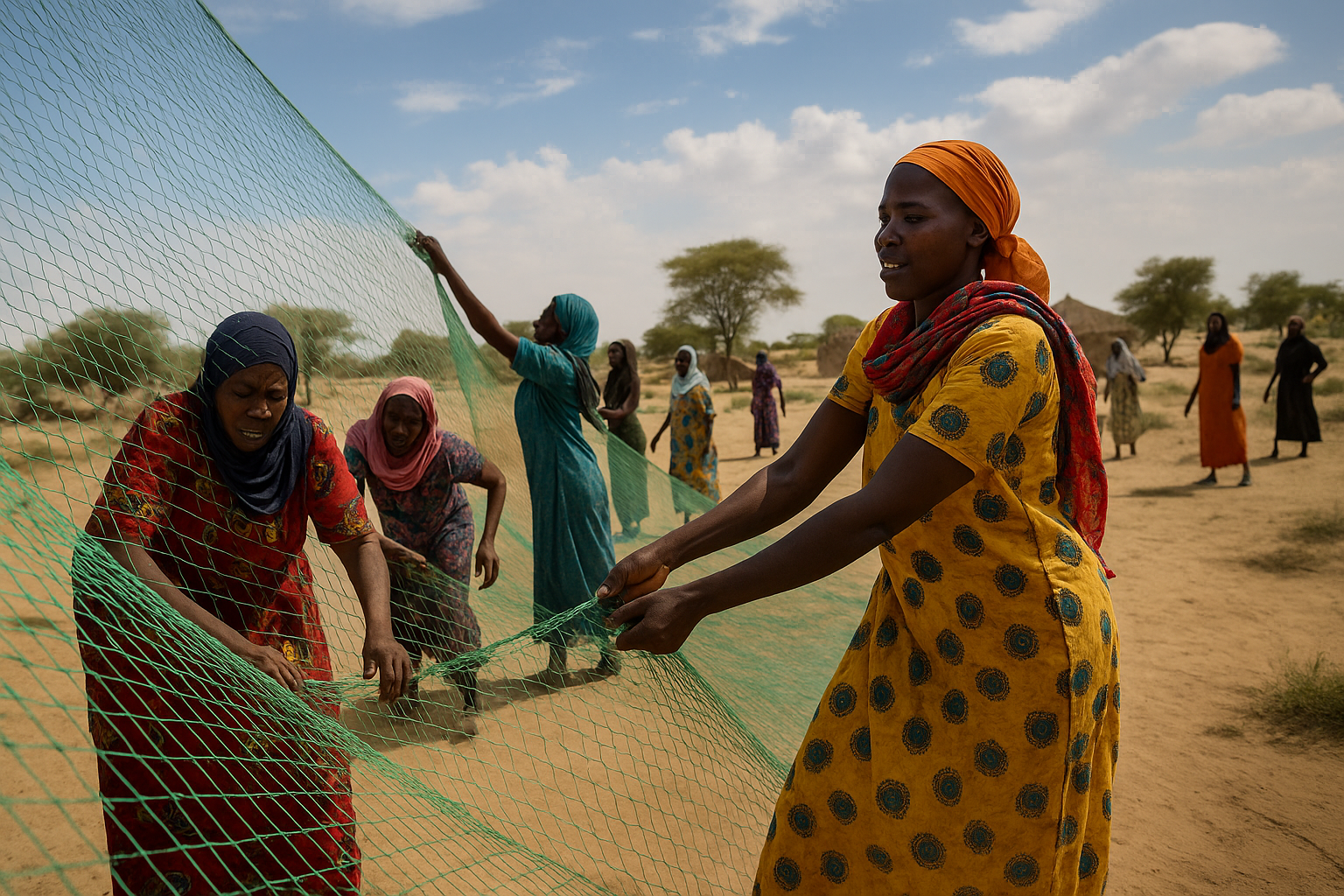From Poverty to Progress: Chad’s Social Protection Programs Spark Lasting Change
Chad’s adaptive social protection programs, backed by the World Bank and SASPP, have significantly improved household welfare, food security, and women’s economic empowerment through cash transfers and economic inclusion. Scalable and cost-effective, these interventions also generated broad community spillovers, offering a model for resilience in fragile Sahelian contexts.

In the Sahel, a region long marked by fragility, poverty, and climate-driven shocks, Chad has taken a bold step toward securing the well-being of its most vulnerable citizens. Backed by research from the World Bank, the Sahel Adaptive Social Protection Program (SASPP), and scholars including Premand, Schnitzer, Daye, and Kandpal, the country has emerged as a leader in implementing Adaptive Social Protection (ASP) programs. These interventions, integrating safety nets, economic inclusion, and shock-responsive support, are transforming how Chad addresses poverty, food insecurity, and gender inequality. Through a multi-phase rollout involving digital tools and cross-sectoral coordination, Chad is showing that effective, scalable, and inclusive safety nets are not only possible in low-income contexts but can also generate sustained positive impacts across generations.
Cash That Counts: Tangible Results from the PFSA Pilot
Chad’s first major ASP intervention, the Projet Pilote de Filets Sociaux Adaptatifs (PFSA), was implemented between 2016 and 2020. This program targeted 6,200 vulnerable individuals with quarterly cash transfers of 45,000 CFA francs (roughly $75), delivered over a two-year period. Another 6,956 people benefited from temporary employment through public works. The impact of this modest but steady cash flow was profound. Within just one year, household consumption rose significantly, with most funds allocated to food, health, and education. On average, 79% of the transfers went to immediate needs. One of the clearest outcomes was a 38% reduction in the likelihood of a household going an entire day without food. Such a statistic underscores the immediate value of predictable income in communities facing chronic uncertainty.
The PFSA didn’t stop at alleviating hunger; it also set the groundwork for more sustainable change by complementing cash with economic inclusion elements. Beneficiaries gained access to training, financial literacy, and support for micro-enterprises. Women, in particular, became the program’s most dynamic agents of change. Compared to non-recipients, women beneficiaries were 18% more likely to start a business, 20% more likely to pursue wage work, and more inclined to reinvest in agriculture or reduce household debt. These shifts also translated into greater empowerment, as women took on stronger roles in household decision-making and increasingly resisted domestic violence.
Scaling Up: A National Vision for Adaptive Safety Nets
Building on the momentum of the pilot, Chad launched the Adaptive and Productive Safety Net Project (PFSASP) in 2025. This new phase aimed to reach tens of thousands more households, with a broader focus on long-term resilience and scalability. Specifically, the PFSASP targeted 40,000 food-insecure households, 25,000 affected by climate-related disasters, and 5,000 impacted by flooding. What sets this effort apart is its systemic approach, leveraging social registries, grievance redress platforms, and digital payment systems to institutionalize transparency and efficiency.
The expansion of ASP was also bolstered by Chad’s national social protection strategy, introduced in 2015, which envisioned universal coverage and integration across government and donor programs. The Refugees and Host Communities Support Project (PARCA), implemented from 2018 to 2023, further demonstrated ASP’s flexibility. It extended transfers to 120,000 people, including refugees, reinforcing the government’s capacity to respond to both development and humanitarian needs using a unified framework.
Empowering Women, Transforming Communities
One of the standout features of Chad’s ASP journey has been its deep and measurable impact on women’s empowerment. The gains recorded among female beneficiaries, higher entrepreneurial activity, increased household income, and debt reduction also contributed to more diverse and resilient livelihoods. Women were not only starting businesses; they were also joining savings groups, investing in agriculture, and asserting more influence over household decisions.
These impacts were amplified in a 2019 simplified economic inclusion pilot, which combined small capital transfers with training and livelihood coaching. Eighteen months after its conclusion, participants saw a 13% increase in food consumption and improvements in overall welfare. Women’s participation in savings groups rose by 44%, and household asset ownership jumped by 64%. Perhaps even more remarkable were the spillover effects: non-participant households also benefited. They adopted similar income-generating behaviors, improved dietary intake, and demonstrated higher levels of engagement in microenterprises. In particular, women in non-recipient groups saw a 9.8 percentage point rise in participation, reinforcing the catalytic role of empowered women in community transformation.
Big Impact, Modest Cost: A Model for Fragile States
Beyond its human development achievements, Chad’s ASP experience stands out for its cost-effectiveness. The simplified economic inclusion intervention cost just $104 per household, or $252 in 2016 PPP terms, making it one of the most affordable models of its kind. Even under conservative assumptions of declining returns, the internal rate of return (IRR) was estimated at 32%. When spillover effects were included, that figure rose to 73%. A moderate projection that factored in both spillovers and a 50% decline in direct benefits pushed the IRR to an impressive 123%, with total benefits more than tripling costs.
The implications of Chad’s experience resonate far beyond its borders. In neighboring Sahel countries, Niger, Mali, Burkina Faso, Mauritania, and Senegal, similar ASP programs are delivering comparable gains in poverty reduction, school advancement, and community cohesion. Chad’s journey provides a powerful blueprint for other fragile and climate-vulnerable states: one where short-term relief mechanisms are thoughtfully integrated into long-term resilience and empowerment strategies. Rather than functioning as a temporary safety net, ASP in Chad is becoming a springboard for inclusive development, one household, one woman, one community at a time.
- FIRST PUBLISHED IN:
- Devdiscourse
ALSO READ
Chad Meredith's Nomination Sparks Judicial Debate
Chad Meredith's Judicial Nomination: Unopposed and Contentious
Trump's Controversial Nomination of Chad Meredith for Federal Judgeship
UNICEF Urges Urgent Action for Sudanese Refugee Children Amid Crisis in Chad
Maroc Telecom and IFC Launch €370M Partnership to Expand 4G in Mali and Chad










